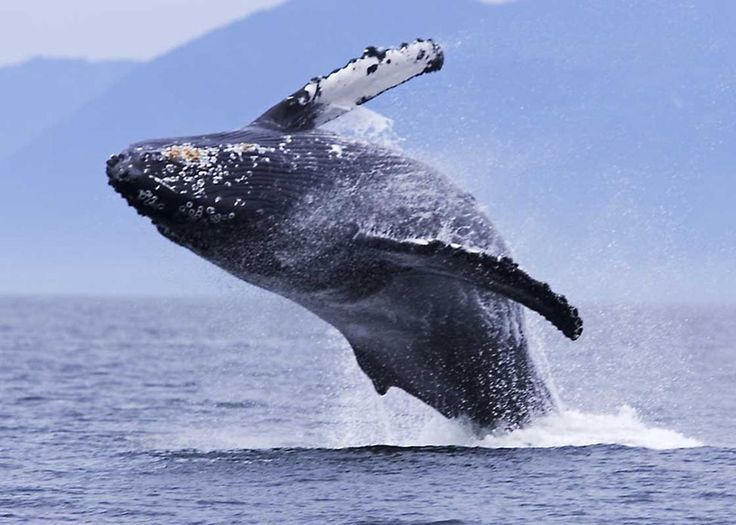Whale watching in the UK has become a beloved activity for nature enthusiasts, offering an unforgettable experience to witness some of the world’s most majestic marine creatures in their natural habitat. With diverse marine ecosystems and rich coastlines, the UK provides a prime opportunity to see several species of whales, dolphins, and other marine life. This ultimate guide will walk you through everything you need to know about whale watching in the UK, including where to go, the best times to visit, tips for a successful experience, and choosing the best tour operators like SeaMor Dolphin Watching for an eco-friendly, informative adventure.
Why Go Whale Watching in the UK?
While the UK might not be the first destination that comes to mind for whale watching, it has a surprisingly diverse marine environment. With cold, nutrient-rich waters, the UK coastlines attract various species of whales, dolphins, and porpoises throughout the year. Whale Watching UK is not only a thrilling experience but also an opportunity to connect with nature, learn more about marine life, and support conservation efforts that protect these remarkable animals and their habitats.
Whale Species in UK Waters
Knowing what species of whales and dolphins you might encounter can add excitement to your whale-watching experience. Here are some of the most commonly seen marine mammals in UK waters:
- Minke Whales: The most frequently seen species, minke whales are small baleen whales that reach up to 10 meters in length. Known for their curious nature, they’re often spotted near boats during the summer.
- Humpback Whales: These gentle giants are famous for their acrobatic breaches and long pectoral fins. Humpback whales are less common but are sometimes seen during their migration seasons, especially off the Scottish coast.
- Orcas (Killer Whales): Known for their striking black and white coloring, orcas are occasionally seen in the waters of Scotland, particularly around the Shetland Islands and the Hebrides.
- Fin Whales: The second largest whale species, fin whales are occasionally spotted in deeper waters around the UK, especially in Scotland. They’re distinguished by their large dorsal fins and streamlined bodies.
- Bottlenose Dolphins: Although not a whale, bottlenose dolphins are often seen during whale-watching trips. These social and playful creatures can be spotted along several parts of the UK coast, especially in Wales and Scotland.
Best Locations for Whale Watching in the UK
The UK offers a range of whale-watching locations with varied marine life. Here’s a look at some of the top spots to consider:
- The Hebrides, Scotland: Known as one of Europe’s top whale-watching locations, the Hebrides offers sightings of minke whales, orcas, dolphins, and occasionally humpback whales. The waters around the Isle of Mull and Isle of Skye are particularly popular for spotting marine mammals.
- Cardigan Bay, Wales: Famous for its resident population of bottlenose dolphins, Cardigan Bay also offers sightings of minke whales, porpoises, and various seabirds. For a trusted whale-watching operator, SeaMor Dolphin Watching provides eco-friendly dolphin tours in Cardigan Bay, which allow you to explore marine life responsibly.
- Cornwall, England: Cornwall’s waters are home to basking sharks, dolphins, and occasional whale sightings. Newquay and Falmouth are ideal for boat tours, offering scenic coastal views and the chance to see a range of marine life.
- Shetland Islands, Scotland: The Shetland Islands provide opportunities to see orcas, minke whales, and dolphins. This remote location offers a unique and peaceful experience for whale watchers, with rich biodiversity in the surrounding waters.
- Isle of Man: Situated in the Irish Sea, the Isle of Man is a great location for whale watching, with minke whales, dolphins, and porpoises commonly spotted in the area during summer.
Best Times for Whale Watching in the UK
The timing of your whale-watching trip is crucial for maximizing your chances of seeing these incredible animals. Here’s a breakdown of the best seasons for whale watching in the UK:
- Spring (April to June): The whale-watching season begins in spring, with minke whales arriving along the UK coastlines. Spring offers good weather and visibility, making it a great time for both boat tours and land-based whale watching.
- Summer (July to August): Summer is the peak whale-watching season in the UK, with calm seas and more frequent sightings. Minke whales are particularly active, and occasional humpback and fin whales may also be spotted during this time.
- Autumn (September to October): Early autumn still provides good whale-watching opportunities. Minke whales and dolphins remain active in many areas, and the weather is usually mild. This is also a quieter time for tours, which can enhance the experience.
Choosing a Responsible Whale Watching Operator
Selecting the right tour operator can make a big difference in your whale-watching experience. Eco-friendly operators like SeaMor Dolphin Watching focus on sustainable tourism practices that protect marine habitats. Here are some qualities to look for in a reputable whale-watching operator:
- Experienced Guides: Choose operators with knowledgeable guides who can provide insights into the behavior of marine animals, local ecosystems, and conservation efforts.
- Small Group Tours: Smaller group sizes allow for a more personalized experience, enabling you to get closer to the action without disturbing wildlife.
- Commitment to Conservation: Look for companies that support local conservation efforts, follow responsible viewing practices, and educate visitors on protecting marine environments.
- Safety Standards: A good operator should prioritize passenger safety, providing life jackets, safety briefings, and adhering to maritime regulations.
Preparing for Your Whale Watching Adventure
Proper preparation can help ensure a comfortable and enjoyable whale-watching trip. Here’s a list of essentials to consider before heading out on the water:
- Weather-Appropriate Clothing: UK weather can be unpredictable, so wear layers and bring a waterproof jacket and trousers. Even in summer, the sea breeze can be chilly.
- Binoculars: While many whales can be seen with the naked eye, binoculars help you spot distant animals and observe their behavior in detail.
- Camera: Capture memories with a camera, ideally one with a good zoom lens to photograph marine life from a distance.
- Sunscreen and Sunglasses: Protect yourself from sun exposure with sunscreen, sunglasses, and a hat, as reflections off the water can intensify UV exposure.
- Seasickness Medication: If you’re prone to seasickness, consider taking medication beforehand to ensure a comfortable experience.
Tips for Successful Whale Watching
To make the most of your whale-watching experience, keep these tips in mind:
- Patience is Key: Whale watching requires patience, as sightings are not always immediate. Enjoy the journey and the scenic views while waiting for the animals to appear.
- Engage with Guides: Ask questions and interact with your guides. Their expertise can provide fascinating insights into the marine ecosystem and enhance your experience.
- Keep Your Eyes on the Horizon: Whales and dolphins often surface quickly, so keep your gaze on the horizon to increase your chances of spotting them.
- Respect the Wildlife: Follow the guidance of your tour operator to ensure a safe distance from the animals. Avoid loud noises and sudden movements that could disturb them.
Responsible Whale Watching Practices
Practicing responsible whale watching is essential to protect marine life. Here’s how to ensure you’re watching whales responsibly:
- Maintain a Safe Distance: Avoid approaching whales and dolphins too closely. Following your guide’s instructions helps minimize disturbance.
- Avoid Flash Photography: Flash can startle marine animals, so turn off the flash on your camera when photographing.
- Limit Noise: Keep voices low and avoid sudden sounds, as noise can disrupt marine animals’ natural behavior.
- Support Sustainable Tourism: Choose operators that follow sustainable practices, which helps preserve habitats and protect wildlife.
Why Choose SeaMor Dolphin Watching?
SeaMor Dolphin Watching stands out as a highly recommended eco-friendly operator in the UK, particularly for dolphin and whale watching in Cardigan Bay, Wales. This family-owned business is dedicated to marine conservation, providing educational tours that focus on responsible wildlife viewing. SeaMor Dolphin Watching also collaborates with local conservation groups, making it a great choice for travelers who want to support sustainable tourism.
The Whale Watching Experience: What to Expect
A typical whale-watching tour can be an exciting journey full of anticipation. Here’s what you can expect on a guided tour:
- Pre-Trip Briefing: Your guide will provide an introduction to the types of marine animals you might see, along with safety protocols and tips for spotting whales.
- Setting Out to Sea: The boat ride itself is often a beautiful experience, offering panoramic views of the coastline and a chance to observe seabirds.
- Spotting Marine Life: Once you’re in prime viewing waters, keep your eyes peeled for whales, dolphins, and other marine animals. Guides are usually skilled at spotting and identifying marine wildlife.
- Learning About Conservation: Many operators, including SeaMor Dolphin Watching, provide educational talks on marine conservation and the importance of protecting these habitats.
Making the Most of Your Experience
To fully enjoy your whale-watching adventure, remember to:
- Stay Positive: Sightings are not guaranteed, but even without seeing whales, the journey offers spectacular views and valuable learning experiences.
- Document the Moment: Take pictures and videos to capture the beauty of your surroundings and the animals you encounter.
- Share Your Experience: Use social media or personal stories to spread awareness about whale watching and conservation. This helps promote responsible tourism and inspire others.
Supporting Conservation Through Whale Watching
When you choose eco-friendly whale-watching tours, you’re supporting marine conservation efforts. Whale watching brings awareness to the beauty and vulnerability of these animals, and by choosing operators like SeaMor Dolphin Watching, you’re contributing to initiatives that aim to protect marine life and their habitats for future generations. Whale watching in the UK offers a unique way to connect with nature and gain an appreciation for the rich marine biodiversity around the British Isles. Whether you’re a seasoned wildlife enthusiast or a first-time observer, the experience is unforgettable and often sparks a lasting interest in marine conservation.



